Are you looking for fruit plants that are low maintenance, easy to grow and beginner friendly? We bring you a list of fruit plants along with their care tips that will help you grow your own source of vitamins and minerals.
1.Guava(Psidium guajava):

Although guava has been introduced from tropical America, it is widely loved across India. Guava is also known as the poor man's apple because of its availability to common people at a much lower rate than apples.Guava can grow very well in subtropical and tropical areas.
Health Benefits of Guava :
- It is a very cheap and rich source of vitamin C and contains a fair amount of calcium needed to strengthen your bones.
- It can be used to make jelly while not losing its vitamin C content. Vitamin C increases our immunity which is lost in many fruits while cooking.
Care tips for guava plant:
- It is a hardy fruit, which means it can grow in any soil without any proper fertilizing or irrigation.
- Pluck your fruit from the tree as it matures. Do not let them ripen on the tree till you want diseased fruit.
- Prune the root before the onset of monsoon for better growth. Always train and prune your tree for better production.
Buy Guava Plant
2.Banana(Musa sp) :

Banana is one of the oldest fruits known to mankind. It has become an important fruit overtime, commonly known as the ‘apple of paradise'.
Health Benefits of Banana :
- It is a rich source of energy, providing you with a boost of the day. It provides you with 137 Kcal per 100 g.
- It works as a good laxative and helps in weight management.
Care tips for the Banana plant:
- Remove leaves which are turning yellow or brown for healthy growth.
- Your new banana plant can grow from the old pseudostem itself.
- Keep your soil well drained and apply organic manure accordingly.
3.Custard Apple (Annona squamosa) :
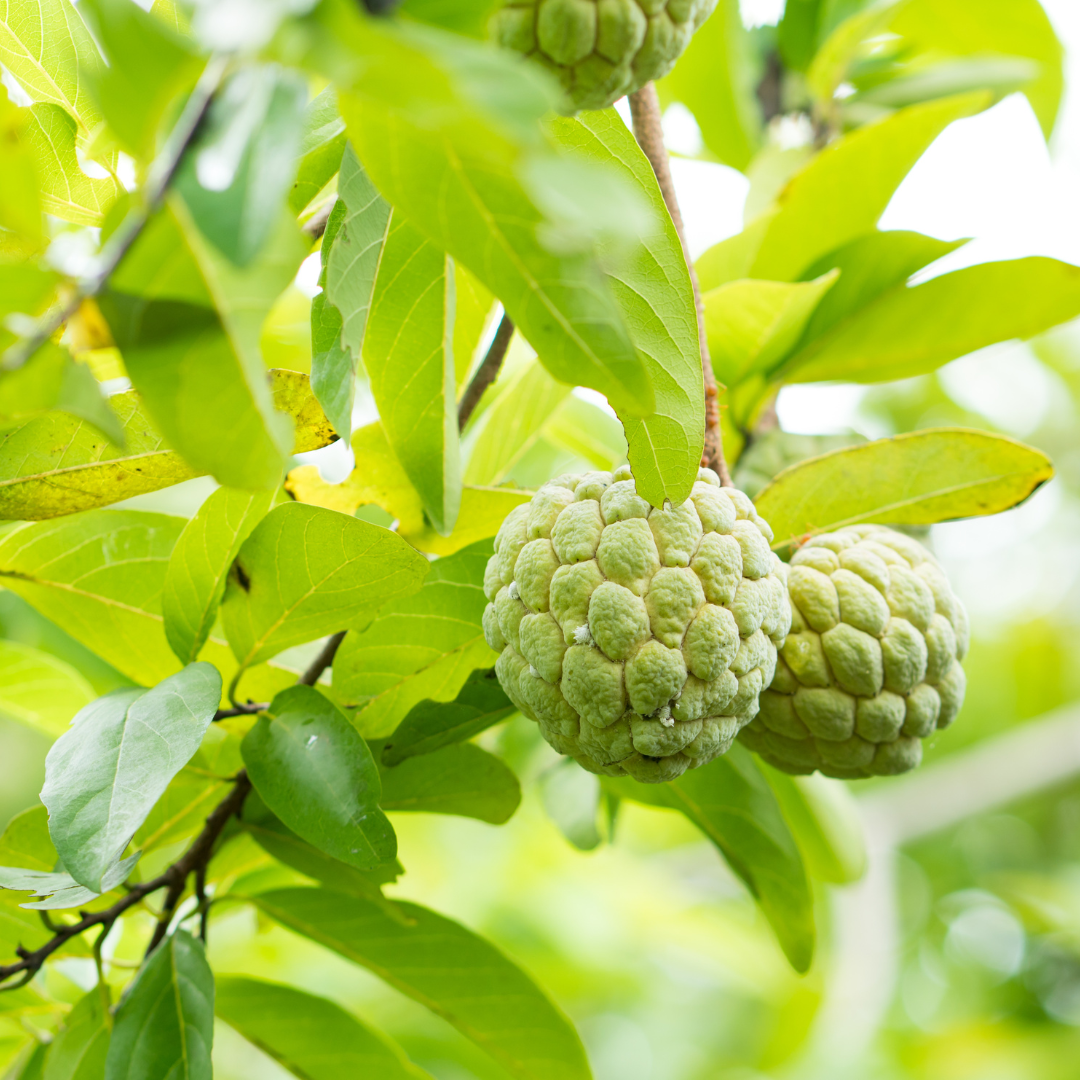
Custard apple is a delicacy of dry regions. A very sweet delicate flesh is inside the hard covering. It is commonly known as sitaphal or sugar apple. Ramphal, Cherimoya, or Atemoya are some of its different varieties. You can make dessert, ice cream, jam and jelly to serve in hot weather.
Health Benefits of Custard Apple :
- The fruits are rich in carbohydrates mainly in the form of sugar, protein, calcium, phosphorus and iron.
- The fruit is high in fiber, promotes digestive health and aids in weight management.
Care tips for the Custard Apple plant:
- Plant is shallow rooted hence deep soil is not necessary.
- It can tolerate high temperatures. Use mulch to reduce the irrigation requirement
4.Mango(Mangifera indica) :

Mango is the king of fruits, and has been grown in India for over hundred years now.The fact that it can grow on a wide variety of soils under varied climatic conditions makes it suitable for our home garden. We all love to eat mango in its different form and taste. We can select from over a thousand varieties for our pickles and milkshake. Although alphonso is the most in demand for its juicy pulp, we cannot ignore the diversity of flavors Miyazaki, Fazli, Langra offer.
Health Benefits of Mango :
- Mango has a high potassium content which helps in regulating blood pressure, and antioxidants protect against heart disease.
- They are also packed with vitamin A, C, B6 which are good for our eyes, immunity, and skin.
Care tips for the Mango plant :
- Plant your mango in a location where it can receive plenty of sunlight.
- Watch out for pests like aphids, mealy bugs, leafhoppers. For a better result use natural remedies or organic pesticides.
5.Pomegranate ( Punica granatum ):
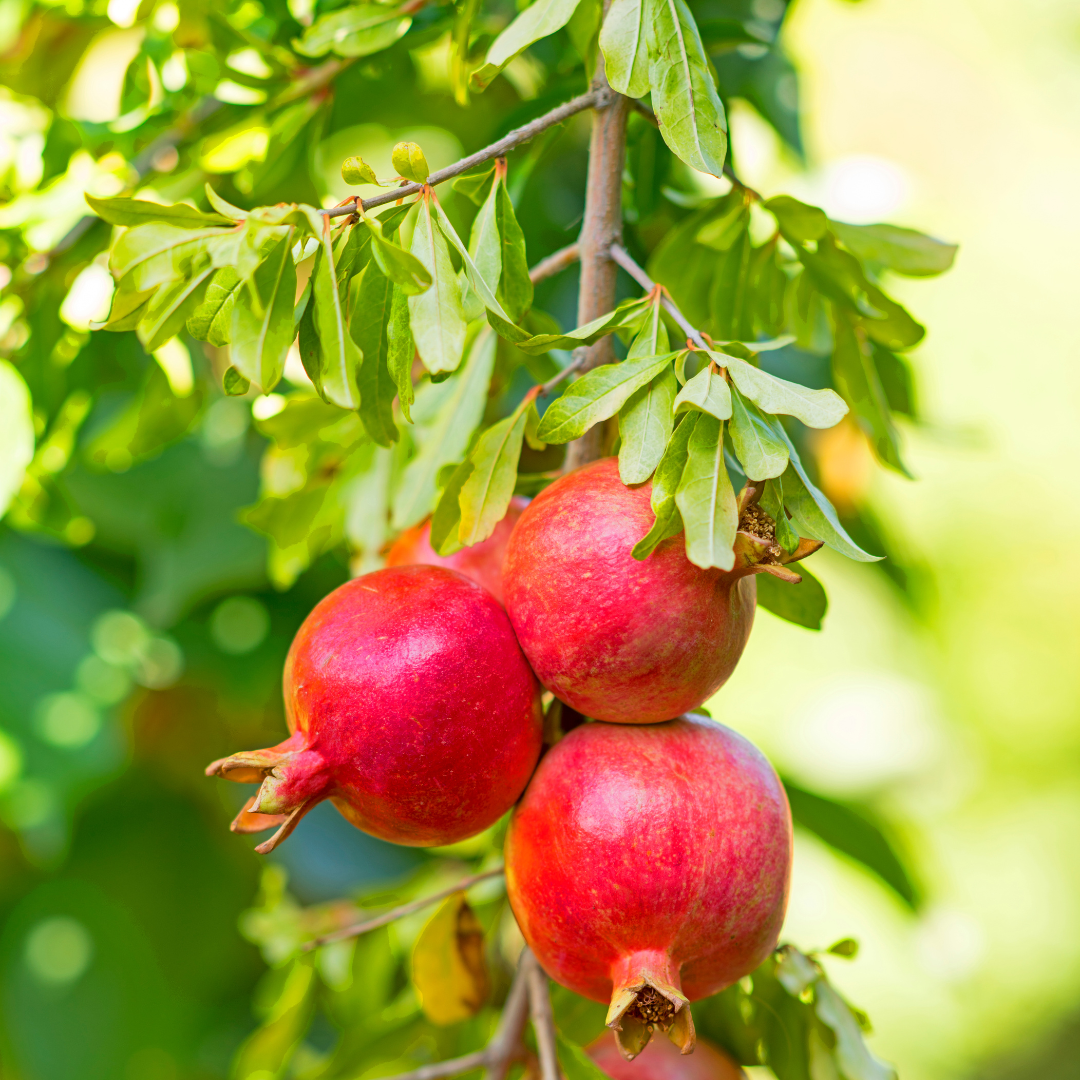
Pomegranate is everyone's favorite table fruit. A cool red colored refreshing juice pops out from the arils on pressing, which has many medicinal properties. It is recommended by doctors.It has been a cultural symbol for thousands of years representing fertility and prosperity.
Health Benefits of Pomegranate :
- Pomegranate juice is useful in the cure of leprosy, dysentery and diarrhea.
- Pomegranate is a rich source of carbohydrate, protein, calcium, phosphorus, iron and vitamin C .
Care tips for the Pomegranate plant :
- Pomegranates produce better in northern India where there is a distinct hot summer and cool winter.
- Apply drip irrigation method or use water in a very precise amount to get better establishment in the early stage as well as regular bearing in the fruiting phase.
6.Lemon ( Citrus limon ) :
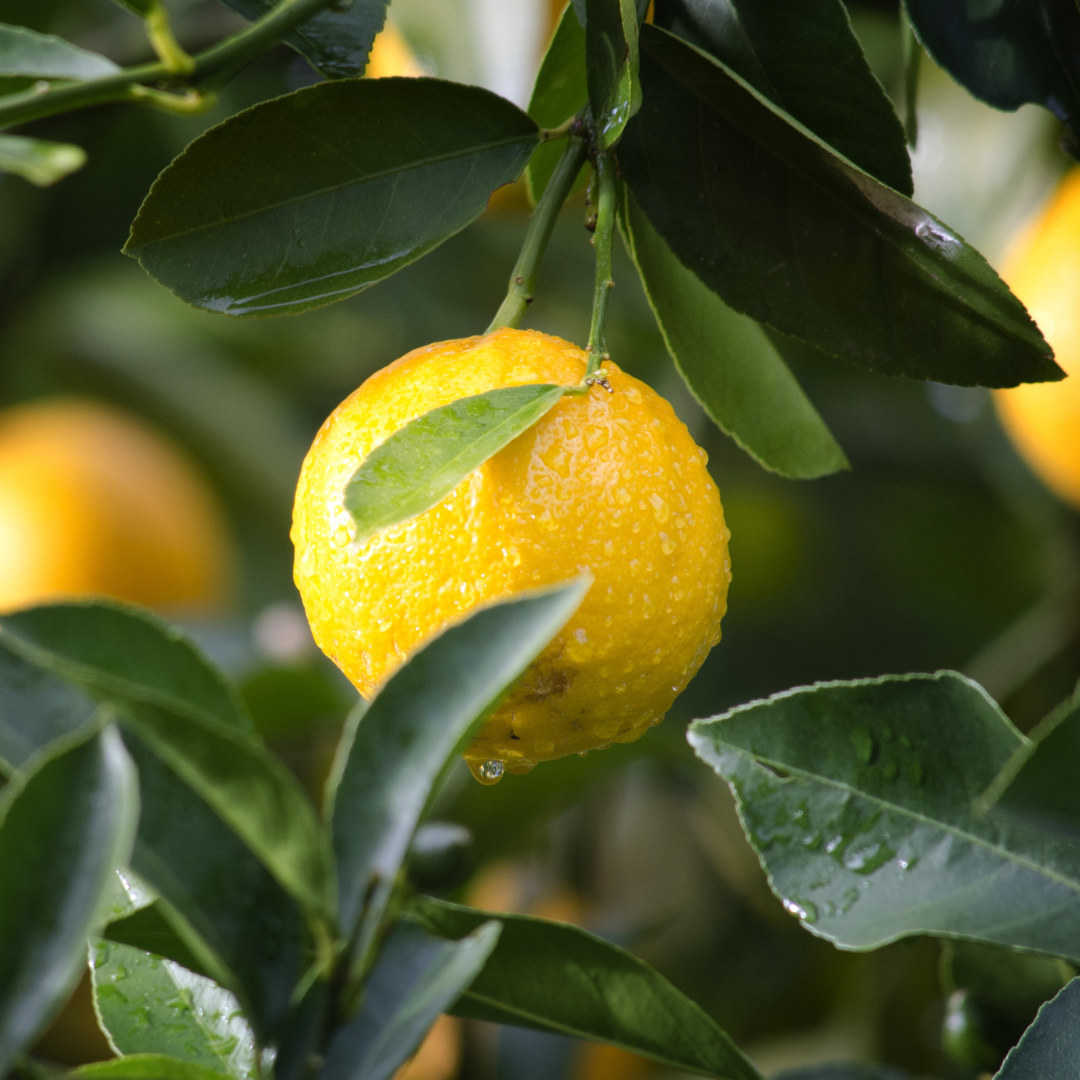
Lemon belongs to the same family as orange i.e, Rutaceae. The citrus fruits have been under cultivation in SouthEast Asia from time immemorial. Lemons show anticancer and antibacterial properties due to alkaloid content in different parts of lemon leaves, stem, root and flower.
Health Benefits of Lemon :
- Lemon has many properties such as anti-inflammatory, anti-viral, antioxidant and anti-diabetic.
- The high vitamin c content of lemon juice makes it suitable to increase immunity against flu, fever, cold.
Care tips for the Lemon plant:
- Lemon grows in tropical and subtropical regions. They need optimum sunlight for growth. Plant the lemon facing south in your home garden.
- Lemon grows well in sandy and sandy loam soil.
7.Papaya (Carica papaya):
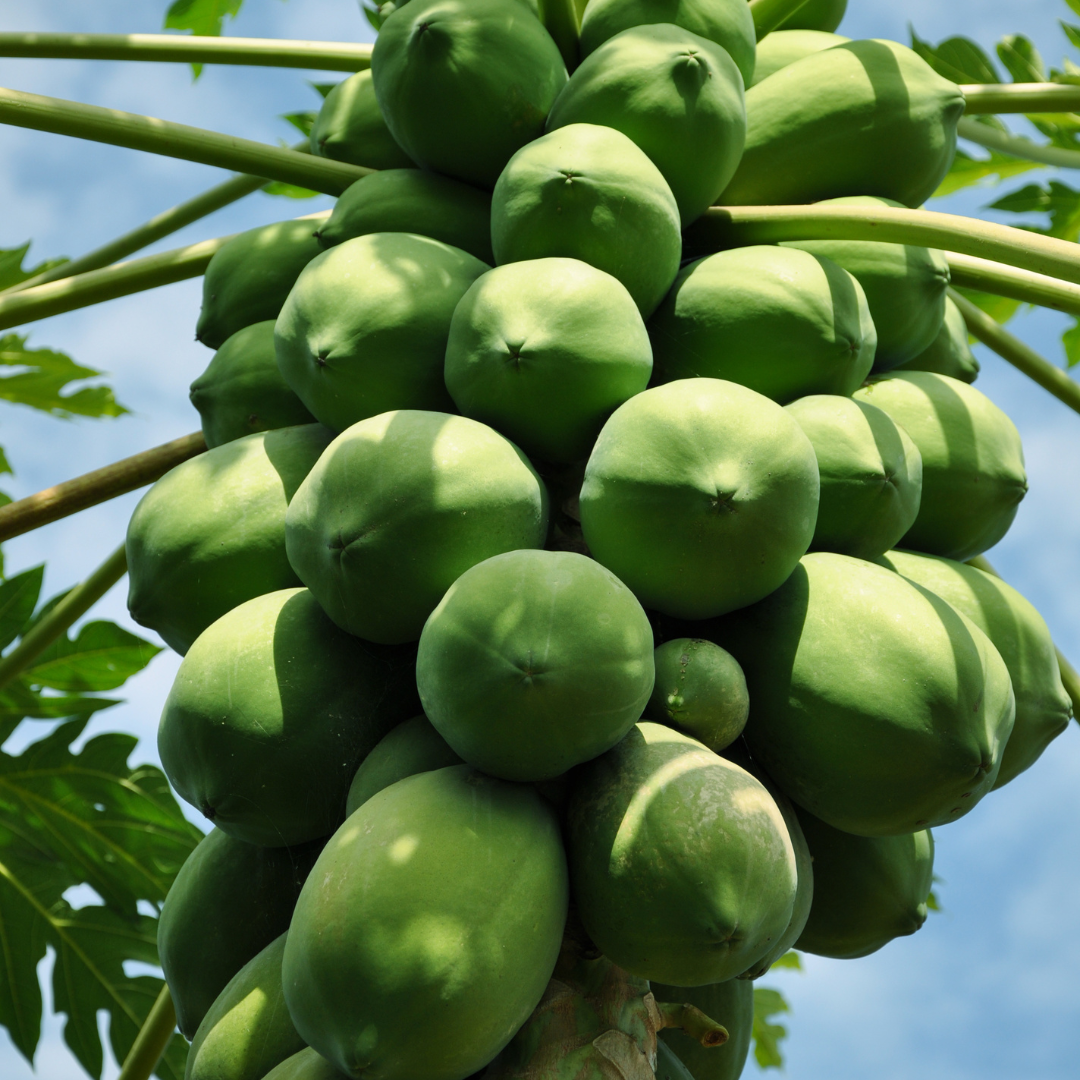
Papaya, a wholesome fruit, was introduced in India in the eighteenth century. It is eaten not as fruit but raw papaya is used as a vegetable in different states of India. Papain, an enzyme which is obtained from papaya, is used in the leather industry, in chewing gum, in cosmetics and in dental paste preparation.
Health Benefits of Papaya :
- Papain, which is obtained from papaya, is used in the treatment of ulcer and diphtheria.
- Papaya is loaded with antioxidants which will give you a clear skin.
Care tips for the Papaya plant:
- It grows well in all types of soil, performing best in loam soil with good drainage.
- Do not let water stagnate around the trees, even for a few hours. The collected water became the source of collar rot infection leading to breakage of trees from the bottom.
8.Ber (Zizyphus mauritiana) :
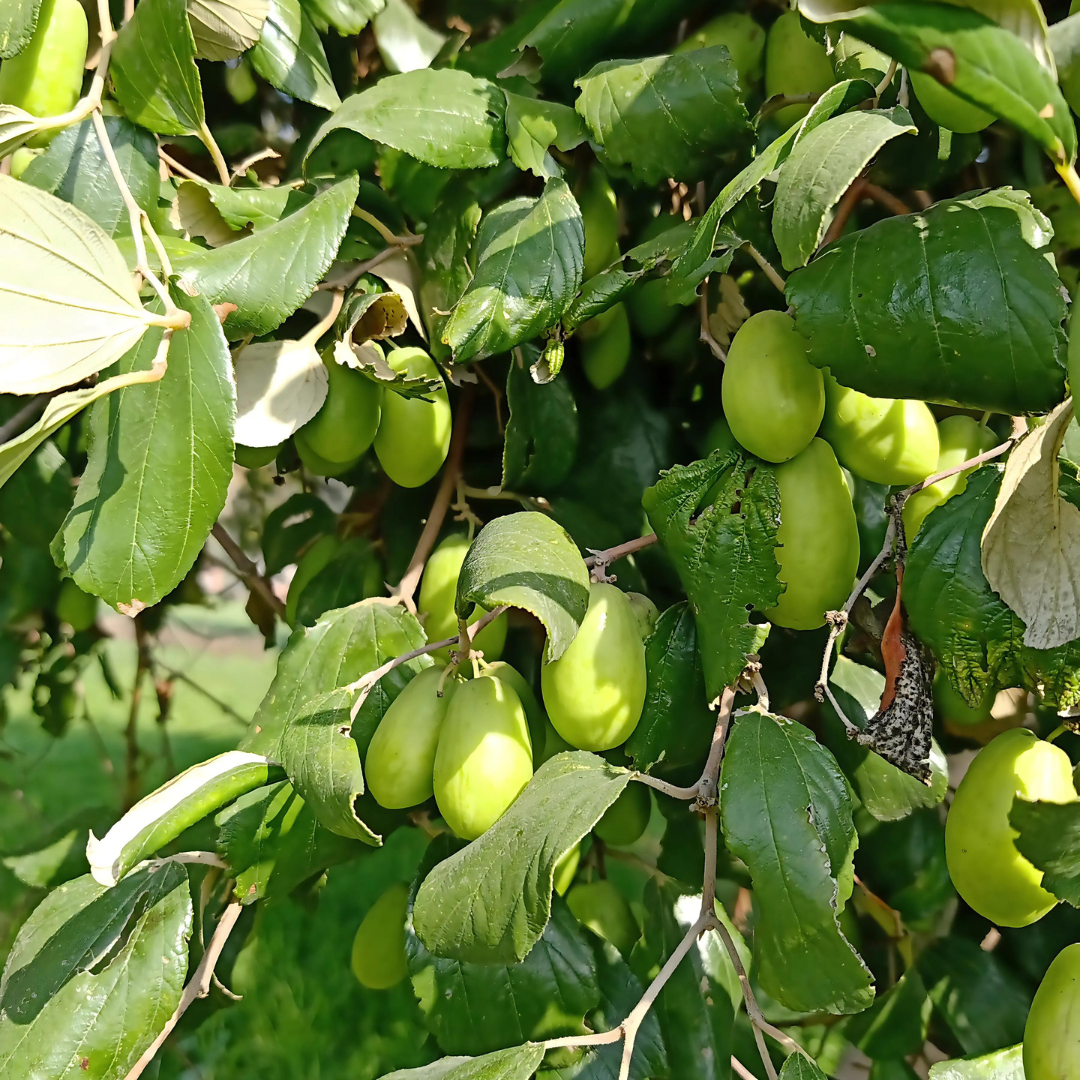
Ber is an ideal fruit tree if you are living in a water scarce area. It can tolerate high temperatures but not frost. It can grow in any barren land where growing a fruit tree is unimaginable. Because of its deep roots, it can survive harsh conditions. Ber is also used to rear lac insect on the branches from where lac is produced. And those lacs are used to make bangles and stamps.
Health Benefits of Ber :
- The powder of ber roots has many medicinal properties.It can be used as cure for ulcer, fever and wounds. The stem bark powder is used for diarrhea.
- It has a high amount of ascorbic acid and sugar content.
Care tips for the Ber plant :
- Ber is prone to fruit fly which can damage the fruits rendering it inedible. Grow fruit fly tolerant varieties such as umran.
- Choose a sunny location for your plant.
9.Jamun( Syzygium cumini ) :
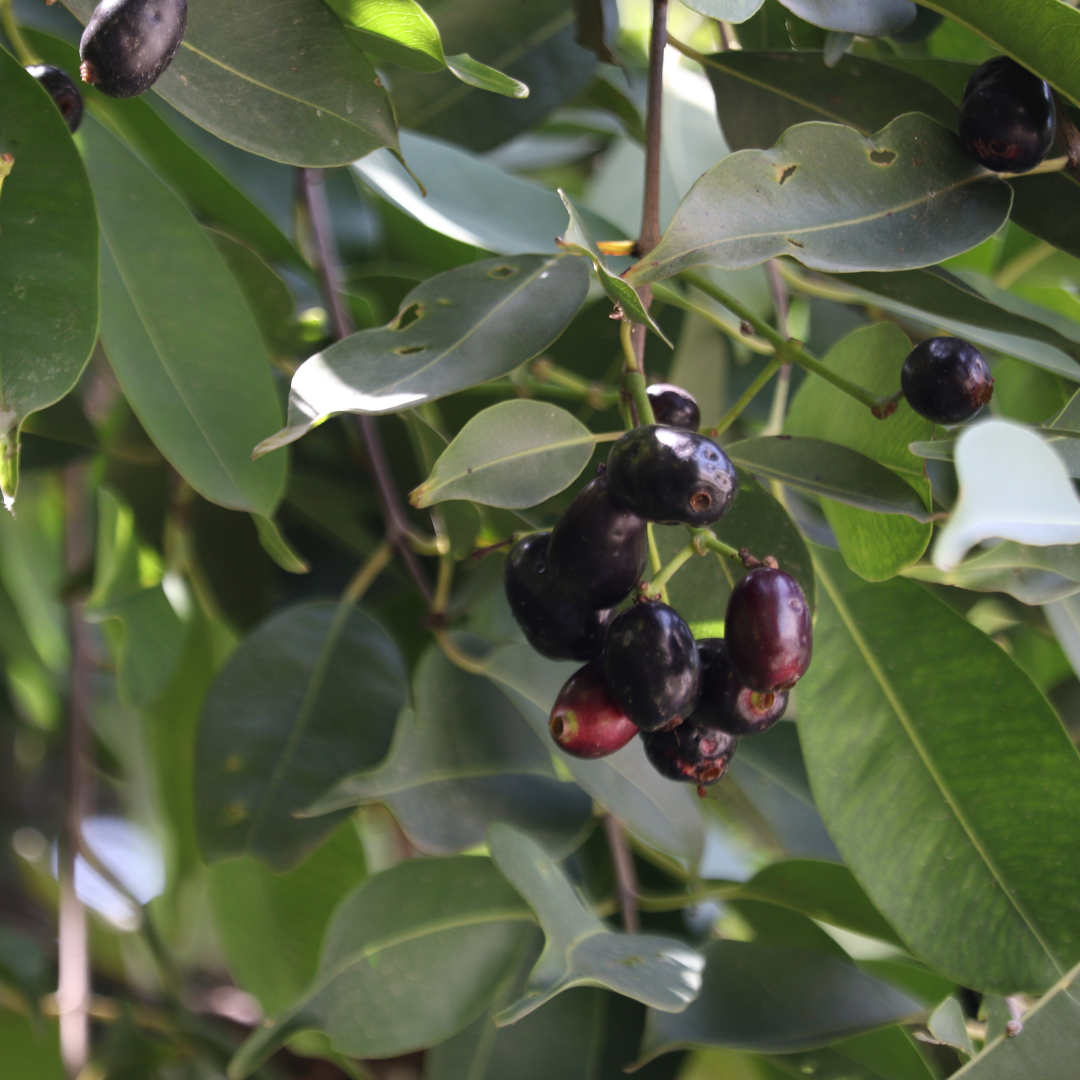
Jamun is one of the hardy fruits, best grown in wasteland. It can tolerate drought, water stagnation and marshlands. It is an evergreen tree, commercially used for timber production.
Health Benefits of Jamun :
- Jamun fruit syrup is used in curing diarrhea.
- The seeds contain compounds like jamboline, which slow down the conversion of starch into sugar hence is used for diabetes treatment.
Care tips for the Jamun plant :
- Use organic manure for the optimum growth of your plant.
- It can grow in a wide range of soil but well drained deep loam soil is ideal.
10.Chiku ( Manilkhara achras ):

Chiku or sapota is one of the delicious fruits with juicy pulp.Sapota being a hardy tree can be grown on a wide range of soils. Traditionally, chiku has been used in ayurveda for its health benefits. Beware of white milk oozing out from immature fruit.
Health Benefits of Chiku :
- Sapota fruits are eaten by adult patients suffering from tuberculosis.
- Sapota has tannin content which has anti-inflammatory properties reducing swelling,pain and inflammation in the body.
Care tips for the Chiku plant :
- It grows in well drained soil with no hard pan.
- Ensure your chiku plant receives 6-8 hours of sunlight. Water them regularly and watch your plant bloom.
Have you decided yet which fruit plant you wanna grow in your home garden this season? If yes, then check out the wide variety of fruit plants from sapota to miyazaki mango and more, we offer. If you enjoyed it then consider sharing it with your plant-loving friends who are looking for a reliable place to expand their collection.

